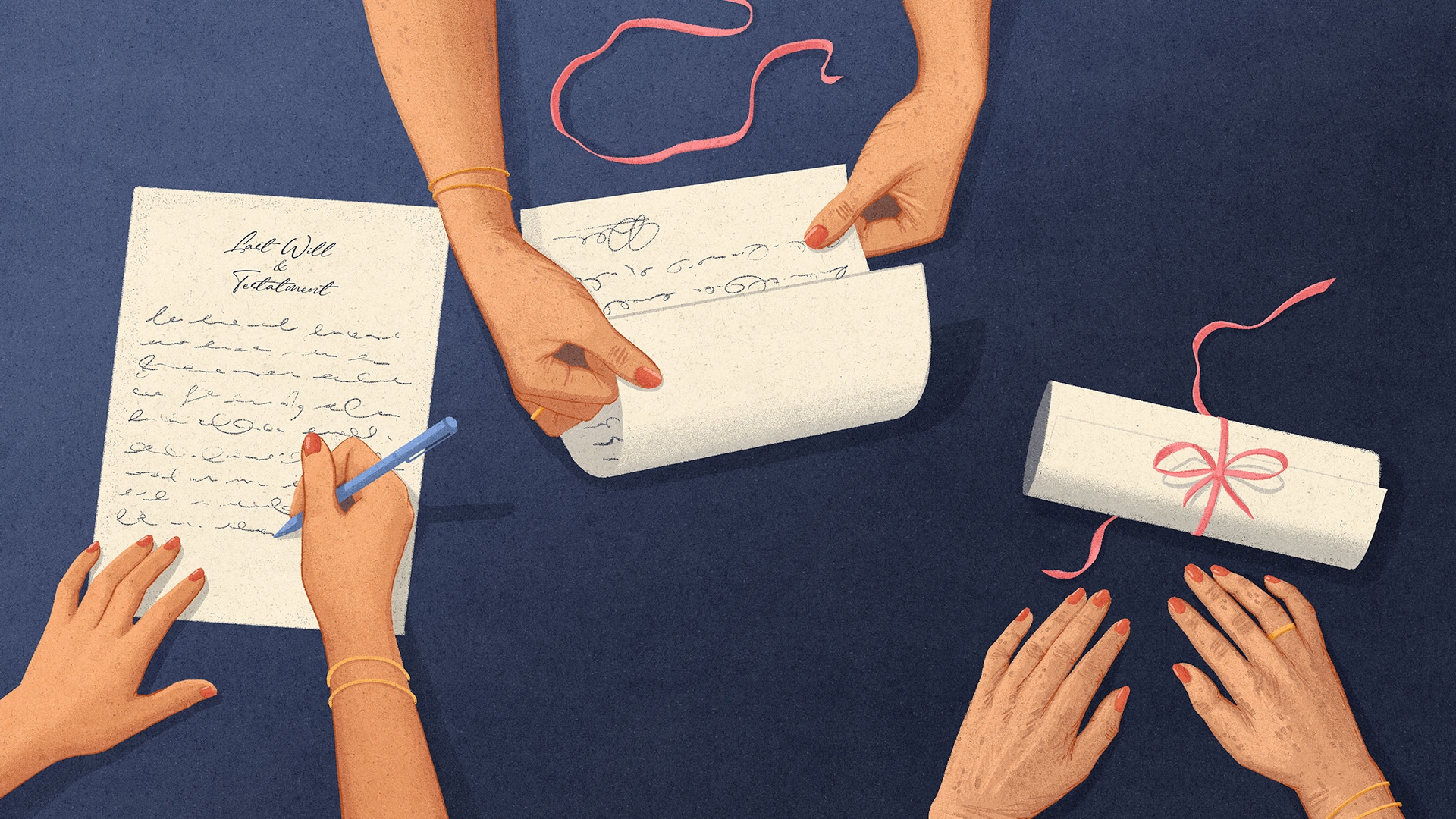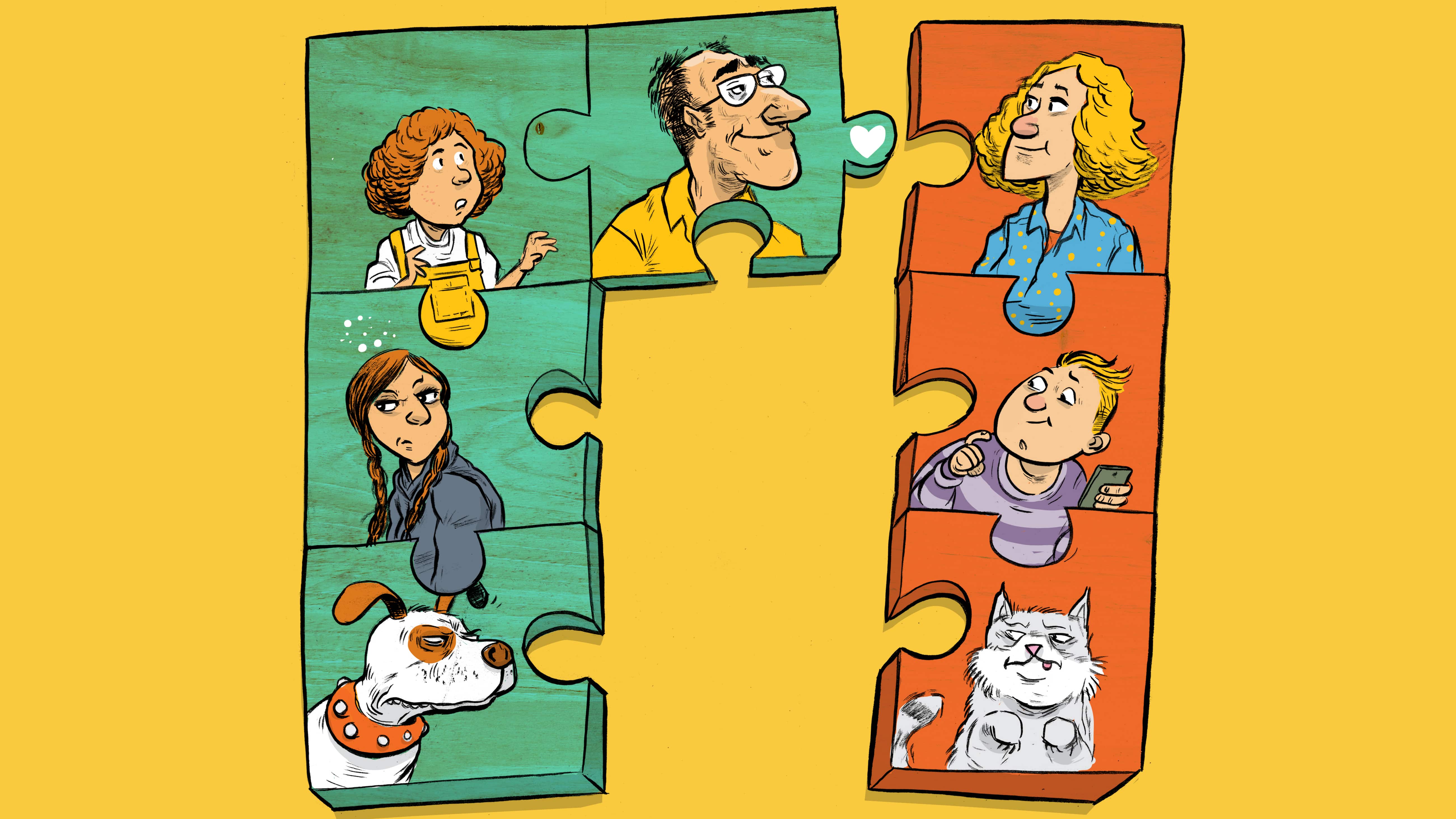
The MoneyTalk estate planning checklist
Planning your estate can seem complicated, but it doesn’t have to be that way. Learn about the five critical areas you can review when building a harmonious estate plan.
Ask Tannis Dawson what people get wrong with their estate plans and she’ll tell you, “The biggest mistake I see is not making a plan at all.”
“People think they’ll live forever,” says the High Net Worth Planner with TD Wealth, about our natural tendency to delay hard discussions about taxes and family arrangements. She recalls a client who kept putting off making any kind of an estate plan — then their health took a bad turn.
“Now we have to do this planning when the family is already in a stressful situation.”
Dawson says it’s ironic that people spend their whole lives accumulating wealth but neglect to consult a financial or tax specialist to ensure that wealth is preserved — or gets to the right person — when they die.
Estate planning is complicated. All aspects of finances in your final decades — finances, taxes, family and more — are mutually dependent on each other. Pulling one string can have unintended consequences that could disrupt the whole plan. We spoke with Dawson to develop a checklist of action items that could act as a broad guide when considering your estate plan.
Finances
Building a well-considered estate plan is important, Dawson says. But it’s equally important to remember that life goes on in the meantime and you will continue to accumulate assets, spend money and make changes in your life. Not only should your estate plan have flexibility to account for these changes, but it should be reviewed regularly and tweaked to ensure it’s on track to fulfill your intentions. Here are six financial areas you can look into.
Set your goals
What do you want to achieve with your estate plan? Are you focused on passing wealth to heirs, ensuring a family cottage or heirloom asset remains in good hands, or guaranteeing there will be education support for grandchildren? With some goals in mind, your next decisions may come easier.
Make a plan with an advisor
A Will alone may not be enough to ensure your intentions are fulfilled. Many assets can pass outside of a Will, with beneficial or detrimental consequences. Working with an Estate Planning specialist can help ensure all aspects of your finances are in sync.
Do some cash flow strategizing
It may seem easy to say your children will split your assets evenly and each receive $1 million. Making that work while accounting for taxes, debts, probate and other obligations is more difficult. Will a future recession or ongoing healthcare bills disrupt your plans? A professional could help to project your plan 10 or 20 years out to protect what matters.
Make a list of your assets
Whether it is property, cash in the bank, registered accounts or your collection of antique teacups, each type of asset passes through to beneficiaries differently and has different tax consequences.
Pay off debts
Building a strategy to split your assets with liabilities looming can be complicated. Having a plan to leave a clean slate could prevent headaches for your heirs.
Simplify and merge your various accounts
Over a lifetime we may accumulate numerous savings, chequing and other financial accounts. You can make it easier on your heirs by consolidating to as few as possible.
Wills and documents
Thinking of taking a budget route and drawing up your own Will? Dawson says she wouldn’t even contemplate it. “You should consult a lawyer experienced in writing Wills and estate planning. Someone deeply experienced in this area can bring their knowledge to your personal situation,” she says. It may cost more but given your wealth is at stake, she says it’s worth it. Once you get the proper specialist to draw up your Will, here are six other points to consider.
Review your will
A Will captures a moment in time but if you live another 25 years your situation and intentions may very well change. Ensure it remains up to date.
Ensure your documents sync up
All estate paperwork should express the same sentiments as your Will. If a marriage contract or loan arrangement states something contradictory, it could cause confusion, delays and add costs to your estate.
Account for digital assets
Technology is constantly evolving and you want your executor to have the tools to deal with any digital accounts and properties you may have now or in the future.
Detail funeral arrangements
You can take the burden off your family during a difficult time and document your own funeral arrangements. Pre-paying for it can also be helpful.
Communicate your intentions
Let your family know what’s in your Will along with the reasoning behind your decisions. These could be difficult chats, but may help head off any claims on your Will or ill-feelings after you pass.
Family
Most of us aim for harmony among our family members while we are living and that should also be a goal with an estate plan. While there are lawyer meetings, paperwork and decisions to be made — sometimes difficult ones — mapping precisely how assets can get to family members is an extension of your love and support. Here are six ideas to consider when making plans for your family.
Look after dependents
Ensure assistance continues for any adult children or elderly parents you care for, including plans to professionally manage any funds passed down. For example, if you have a child with a disability, a Henson Trust could help safeguard future support.
Be specific with Powers of Attorney
If you support someone with regular payments, ensure that is detailed explicitly in your POA. Unless documented, your financial assistance could end if you become incapacitated.
Write a letter of instruction
This can be appended to a Will and give more details in simple language about your wishes. If you have detailed and complicated bequests, this may be the route for you.
Address joint accounts
Having joint accounts between parents and adult children can be convenient for money management but problematic both before and after you die. Consider dissolving any joint accounts or documenting your intentions about legal and beneficial ownership and giving explicit instructions about them in your Will.
Document gifts
Giving away money before you die can be fulfilling and tax efficient. A Deed of Gift document can clarify that this money was not meant to be paid back. Be aware that for tax purposes, non-cash gifts such as real estate or a valuable piece of art may result in an immediate tax liability.
Taxes
It’s often said your biggest tax bill will come after you die. Unless you have a surviving spouse, the Canada Revenue Agency will deem that you have sold your assets at market value, and will tax your estate accordingly. Dawson says people are often shocked to learn how much this can be. But she cautions that attempts to minimize the impact of probate or estate administration taxes could have unintended consequences. Consider working with a tax specialist because managing complex tax issues shouldn’t be done at the kitchen table. Here are five points to consider.
Plan for probate fees
Depending on your province, you may be subject to probate or estate administration taxes. These are based on the level of your wealth. Dawson cautions that complicating your situation to mitigate the impact of probate could end up costing you more in the long run.
Consider the impact of RRSPs/RRIFs
Beneficiaries of Registered Retirement Savings Plans and Registered Retirement Income Funds will directly receive these funds but the tax owing will come out of the estate. If one heir receives your registered funds, other heirs may be unfairly paying a much larger tax bill: Plan ahead for this scenario.
Mock up your final tax return
After you die, your estate will file a T1 Income Tax and Benefit Return. The tax bill attached can have a major impact on the value of assets before they reach your beneficiaries. Walking through this process can give you an eye-opening view of how your affairs will play out.
Protect your heirs
If you feel your heirs may inherit a big tax bill, consider talking to a financial advisor or planner about risk management options to alleviate any future burden on your family.
Think carefully about Trusts
Trusts can be a powerful tool for managing affairs after you die — in particular tax issues — but the costs should be considered. Talk to your planner and advisor and see if this option is right for your circumstance.
Legacy planning
It can be hard to sync your emotions with the hard numbers when giving to your favourite causes. A charity can often be an organization deeply connected with a loved one’s memory or aligned with your social views. “Make a plan with your financial advisor and accountant,” says Dawson. “It’s best to have all parties around the table, to consider not only what makes you feel good but also how the charity may get the greatest benefit and how it could impact your tax situation.” Here are five ideas to consider about charitable giving and your legacy.
Decide: Will you donate while you’re alive?
Because of taxation rules, a charity may benefit more if you give regularly while you are alive as opposed to bequeathing a lump sum at your death.
List the organizations you will support
Large organizations, such as hospitals, may manage numerous charities. When you list your favourite charities, take care to specify the full name including the registered charity number to help get your money there.
Consider a donor advised fund
These funds allow you to set up your own charitable legacy for as little as $10,000 and have tax and administrative advantages.
Think about donating privately
Wills are public documents and anyone can read them. If you wish to be discreet with your charitable activities, you can ask your advisor for alternative means to donate other than through a Will.
Plan a legacy
Have you considered a scholarship or foundation in the family name? If you have the means, you may wish to speak with a financial professional. It may be more realistic than you think.
DON SUTTON
MONEYTALK
ILLUSTRATION
DANESH MOHIUDDEN




![16-03-22 Asked To Be An Executor Read This First- TD MoneyTalk Life Story Illustration [Feat]](https://www.moneytalkgo.com/wp-content/uploads/2016/03/Asked-To-Be-An-Executor-Read-This-First-TD-MoneyTalk-Life-Stories-Feat-1.jpg)










